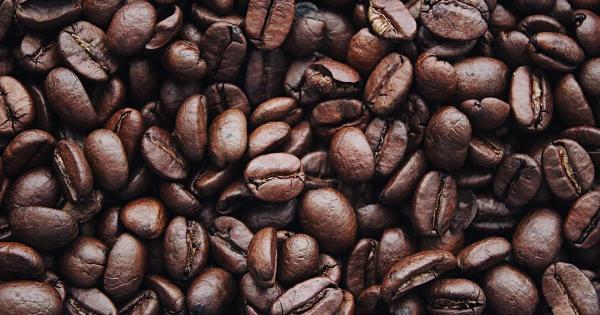When it comes to mental health, there are numerous factors that can contribute to conditions such as depression. One often overlooked factor is our diet and the foods we consume.
While it is important to note that food alone cannot cause depression, research suggests that certain foods and dietary patterns may have an impact on our mood and overall mental wellbeing.
The Gut-Brain Connection
Before delving into the specific foods that may potentially lead to depression, it is crucial to understand the significance of the gut-brain connection.
Our gut and brain communicate through a complex network known as the gut-brain axis, which allows them to exchange signals and influence each other. This connection plays a vital role in regulating our emotions, mood, and overall mental health.
Sugar and Refined Carbohydrates
The modern Western diet, characterized by its high intake of sugar and refined carbohydrates, has been linked to an increased risk of depression.
Consuming excessive amounts of sugary foods and refined carbs leads to rapid spikes and drops in blood sugar levels, which can negatively impact mood and energy levels. These foods also contribute to inflammation in the body, which has been associated with depression.
Trans Fats
Trans fats, primarily found in processed and fried foods, have been shown to promote inflammation and interfere with neurotransmitter function in the brain.
High consumption of trans fats has been linked to an increased risk of depression and other mental health disorders. It is important to read food labels and avoid products that contain partially hydrogenated oils, which are the primary source of trans fats.
Artificial Sweeteners
While artificial sweeteners may seem like a healthier alternative to sugar, they may pose risks to mental health. Studies have suggested a possible link between artificial sweeteners and an increased incidence of depression.
Further research is needed to fully understand this association, but limiting the consumption of these sweeteners, found in diet sodas and various processed foods, may be beneficial for mental wellbeing.
Processed and Fast Foods
The consumption of processed and fast foods has become increasingly prevalent in modern society. These foods are often high in unhealthy fats, sugars, and salt while lacking essential nutrients.
A study conducted in Spain found that individuals who consumed large quantities of processed foods had an increased risk of developing depression. It is important to prioritize whole, unprocessed foods to support mental health.
Omega-3 Fatty Acids
Omega-3 fatty acids, found in fatty fish like salmon, walnuts, and flaxseeds, play a crucial role in brain health. Research suggests that a deficiency in these essential fats may contribute to an increased risk of depression.
Incorporating omega-3-rich foods into your diet can help support healthy brain function and potentially reduce the risk of developing depressive symptoms.
Vitamin D
Vitamin D, often referred to as the “sunshine vitamin,” has been associated with mental health disorders, including depression. Limited exposure to sunlight, which is a primary source of vitamin D, can lead to deficiencies.
While more research is needed to establish a direct relationship, ensuring adequate vitamin D levels through sunlight, supplementation, or foods like fatty fish, fortified dairy products, and eggs may positively impact mental wellbeing.
Probiotics and Fermented Foods
Emerging research suggests that the consumption of probiotics, commonly found in fermented foods such as yogurt, sauerkraut, and kimchi, may have a positive impact on mental health.
These beneficial bacteria in the gut help regulate inflammation and produce neurotransmitters like serotonin, often referred to as the “happy hormone.” Including probiotic-rich foods in your diet may help promote a healthy gut-brain axis and potentially reduce symptoms of depression.
Antioxidant-Rich Foods
Antioxidants help protect our cells from damage caused by free radicals and oxidative stress. Diets high in antioxidant-rich foods, such as fruits, vegetables, and whole grains, have been associated with a lower risk of depression.
These foods provide essential vitamins and minerals that support overall brain health and functioning. Including a variety of colorful plant-based foods in your diet can help ensure an adequate intake of antioxidants.
Caffeine and Alcohol
While many of us rely on a cup of coffee to kick-start our day or enjoy a glass of wine to relax, it is important to note that excessive consumption of caffeine and alcohol may negatively affect mental health.
Caffeine, in high doses, can disrupt sleep patterns and increase anxiety in susceptible individuals. Alcohol is a central nervous system depressant that can exacerbate symptoms of depression and interfere with prescribed medications. Moderation is key when it comes to caffeine and alcohol consumption for maintaining optimal mental wellbeing.
A Balanced Approach to Mental Wellbeing
While certain foods may potentially contribute to depression, it is essential to adopt a holistic approach to mental wellbeing. The impact of diet on mental health is multifactorial, and individualized approaches are necessary.
Rather than focusing on specific foods, it is crucial to emphasize a balanced and varied diet that includes whole, unprocessed foods, and meets individual nutritional needs.
Conclusion
While food alone does not cause depression, research suggests that certain dietary patterns and food choices may impact our mental health.
Consuming a diet high in sugar, refined carbohydrates, trans fats, and artificial sweeteners has been associated with an increased risk of depression. Conversely, incorporating foods rich in omega-3 fatty acids, vitamin D, antioxidants, and probiotics may have a positive impact on mental wellbeing.
It is important to remember that mental health is influenced by various factors, and a balanced approach that includes proper nutrition, exercise, adequate sleep, and professional support is crucial for overall mental wellbeing.































